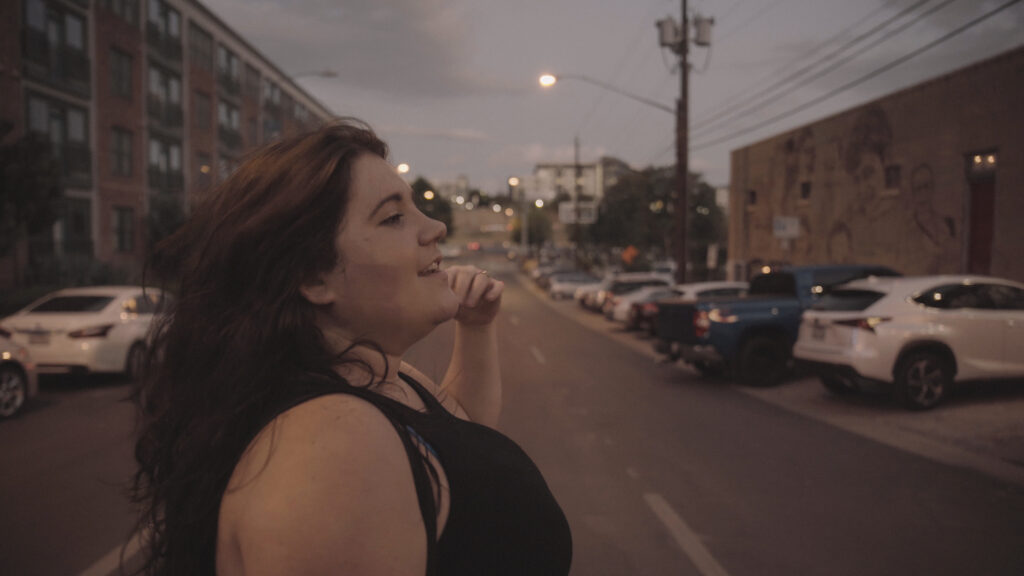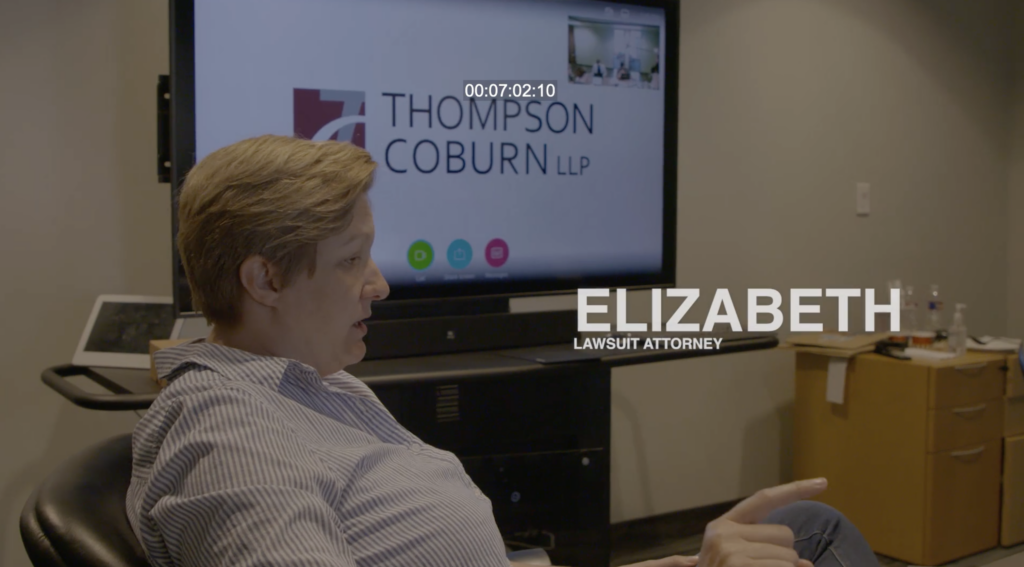A groundbreaking case led by two Dallas lawyers on behalf of victims of sexual assault in Travis County is the subject of a documentary film premiering Friday at the South by Southwest Conference in Austin.
“An Army of Women,” by Norwegian filmmaker Julie Lunde Lillesaeter, tells the story of 15 women who brought class-action lawsuits against the Travis County District Attorney’s Office and the Austin Police Department, alleging that police and prosecutors failed to adequately investigate or prosecute their reports of sexual assault. The women were represented by Elizabeth Myers and Jenny Ecklund, partners in the Dallas office of Thompson Coburn. Its SXSW premiere coincides with International Women’s Day.

After three years of litigation in state and federal court, the litigation was finally settled in January 2022 with the City of Austin formally apologizing to the women, who contended that their cases did not receive proper attention by the authorities because sexual violence disproportionately affects women.
The city also agreed to far-reaching changes in its training, staffing and policies, as well as additional funding for investigations of sexual assault and for victim services. The police department and the DA’s office further committed to comprehensive changes to their policies and protocols for investigating and prosecuting sexual assault.
“Whether it’s a survivor or a family member or a lawyer who is considering doing this kind of work, I hope they walk away from this film recognizing that change is possible,” Ecklund told The Texas Lawbook.
“Even if it’s hard and slow, there are some things worth doing just because they’re worth doing.”
Myers and Ecklund, who are married, have devoted much of their legal careers to advocating for what they regard as human rights, particularly for women. They have filed more than 20 lawsuitschallenging Texas’s highly restrictive abortion statute. They currently have a police brutality case pending in federal court in Dallas against the Dallas Police Department, Dallas County Sheriff’s Department and Texas Department of Public Safety alleging law enforcement used excessive force to quell a 2020 protest in the aftermath of the killing of George Floyd by police in Minneapolis.
Thompson Coburn undertook the Austin sexual-assault cases essentially pro bono, the two lawyers said, reserving a small amount of the settlements to cover attorneys’ fees, with the remainder going to the survivors. In all, each survivor received about $75,000, according to the documentary.
More important than the money, Myers said, was that their suits “gave these women who had their voices stolen from them the power to speak to these institutions. That was the point.”
If “the systemic and pervasive” discounting of women’s complaints of sexual assault could happen in Austin, as the lawyers documented, it could happen anywhere, Myers added.
“I mean, we were in Austin,” she said. “It’s very progressive. The entire county is run by progressives. I fully expected that when we filed our first suit, they would immediately say, ‘This is horrible. Thank you so much for telling us what’s going on. How do we fix it?’ I was naïve. What we were met with was, ‘No, this isn’t happening, you’re making it worse, there’s nothing we can do about it and it’s the legislature’s fault.’”
Only after José Garza was elected as district attorney in 2020, unseating incumbent Margaret Moore, did the county agree to settle with Myers’s and Ecklund’s clients, in June 2021. The City of Austin followed suit the following January, with the City Council voting without opposition to approve a settlement.
“We should all be sorry, as I am, that you had to endure the post-traumas, and that our system did not fix these challenges on its own,” Steve Adler, the then-mayor of Austin, said at the time.
The city agreed to add staffing and funding for detectives, victim services, technology, and administrative assistance to ensure that sexual assault cases are properly handled – in all, committing almost $5 million to implement the changes. One of the plaintiffs in the suits is a consultant to the Austin Police Department as it overhauls its sex-crimes unit.
“The apology was among the most important pieces, certainly, to our clients,” Ecklund said. “They felt they had been overlooked in the whole process, and having people with authority look them in the eye and say, ‘This shouldn’t have happened to you. I’m sorry.’ was so meaningful.”
In a statement to the filmmaker, Moore, the former district attorney, said, “The characterization that I didn’t care about victims of sexual assault was unjust, incorrect, and unsubstantiated. I vigorously addressed sexual assault cases during my term.”
Ecklund said their clients “for the most part are doing really well.” Several of the 15 women, the two lawyers said, are active as advocates for sexual assault survivors.
Assisting Ecklund and Myers in their legal battle with Austin and Travis County were Thompson Coburn partners Mackenzie Wallace, John Atkins and associate Kamran Anwar.
‘This case changed my whole life’
What Myers found most impactful about the film was the opportunity to see her clients in an up-close manner as the cases unfolded, something not afforded through modern-day communication with clients.
“We didn’t get the opportunity to see them on an everyday basis,” she said. “We didn’t always get to see the emotional reactions they were having to the case developments. We were getting a filtered version.”
“It was a more fulsome look into what their experience was,” she added, “which was more interesting than my experience because Jenny and I lived our experience. We already knew what it was. But to see theirs in a fuller way was really magical.”

Because filming spanned nearly five years, Myers and Ecklund were also moved by the opportunity to get to physically see the transformation of their clients as their healing processes unfolded throughout filming.
“It’s surreal to see ourselves, but I’m really grateful that [the documentary] was made because I will always cherish getting to see how different one of the women was four years before versus how she was when we settled the case,” Ecklund said.
The clients weren’t the only people forever changed by this litigation, though.
“This case changed my whole life,” Ecklund said. “It provided me with the love of my life and a life partner. It provided me with a partner in terms of the work that I wanted to do. It gave me a whole new line of work in terms of these constitutional and social justice cases that we get to work on now as a result of what we were able to accomplish in this case. There’s not a single way that this case didn’t ultimately change me.”
Ecklund said she first took the case after her sister, who served on the board of the Austin-Travis County Sexual Assault Response & Resource Team, connected her with Mary Ruth Reyes, a survivor who ultimately became their first client in the litigation.
Ecklund said she was driven to take the case based on her previous career as a social worker and as someone with first-hand experience of dating violence.
“Issues around family violence and sexual assault have always been top of mind for me,” Ecklund said. “I have three daughters. I don’t want my children to grow up in a place where they won’t be believed if something bad happens to them. I felt like this was an opportunity to help not only the women who reached out to us, but also change the landscape for our daughters going forward.”
Myers said she got involved after receiving an email with a draft of the first complaint asking her and other partners at Myers and Ecklund’s previous firm, Thompson & Knight, whether anyone had an objection to the lawsuit being filed.
“I said I don’t have an objection but I want to work on it,” Myers recalled. “It was the stories of the first three plaintiffs … I really couldn’t believe that the experiences I was reading had actually happened. It was so profoundly wrong and [once I knew] that it had happened, I [had] to do everything I could to try to fix this.”
“I’ve had many family members and close friends who have experienced sexual violence in their lives,” Myers added, “but for me it was really this [feeling of] now that I know, I can’t un-know it and I need to do something to try to help.”
The case became meaningful to both on an even deeper level as Ecklund and Myers, who met through working on the case together, began to fall in love.

“We were colleagues and friends for the first year-and-a-half on the case,” Myers said. “Candidly, I don’t know that I recognized what was happening. I think people around us recognized it before we did. It really was just the opportunity to work on something that was both very personally meaningful to both of us and getting to learn who Jenny was through that experience. I woke up one day and I was like, ‘The best thing about this case is that I get to work with her.’”
After nearly missing a redeye flight from Reno, Nevada, Ecklund said she proposed to Myers in Washington, D.C., “because Elizabeth is a history nerd.” The couple tied the knot in 2020 at an outdoor wedding at Myers’ family farm in Moody, Texas.
Ecklund and Myers said most of of their clients attended the wedding. Reyes was Ecklund’s maid of honor since, as the first plaintiff, she was the reason the couple met.
As lawyers who specialized in healthcare law and complex commercial litigation before taking on more constitutional and social justice work, Myers and Ecklund said they’ve enjoyed the career pivot this case became the catalyst of.
“It’s been an interesting transition,” Ecklund said. “Spending almost all of my time now on constitutional issues has been a fascinating trajectory I didn’t foresee in my career, but I love it.”
Myers said she hopes lawyers who see the film recognize “just how much good they can do for somebody.”
“It was affirming for me that being a lawyer is a really important calling and a career that ultimately matters,” she said.
“I desperately needed to be reminded of that when this case came along.”
